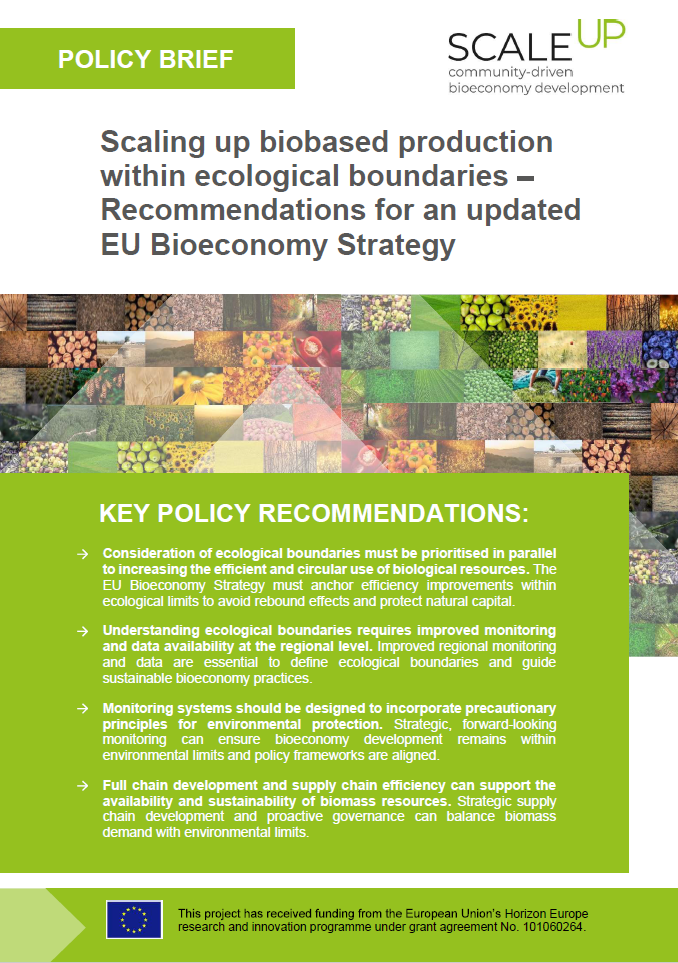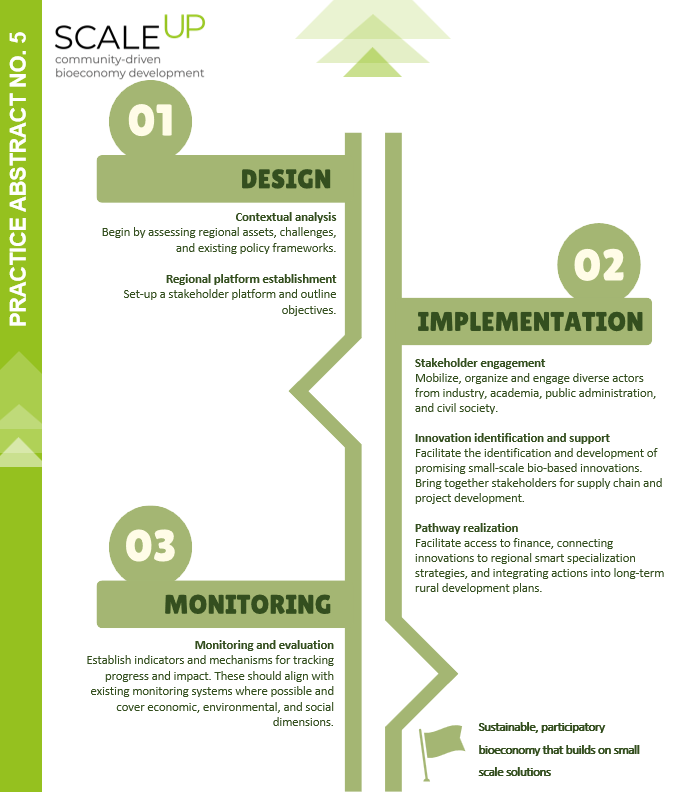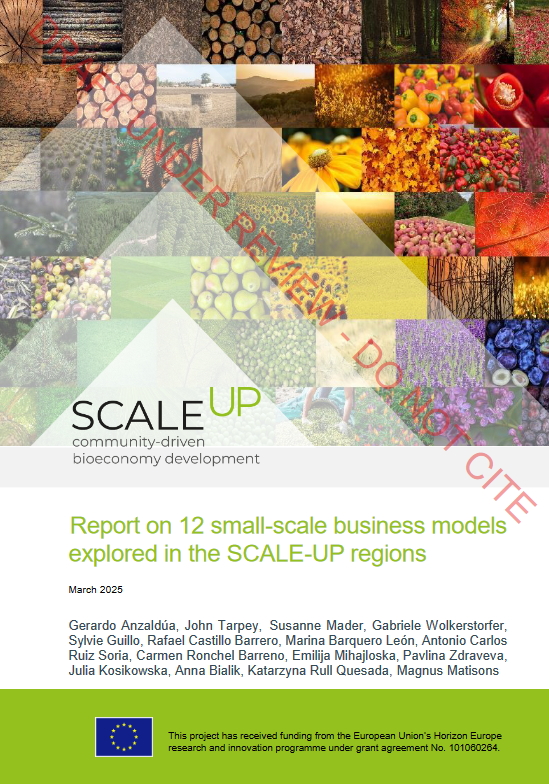Scaling up Biobased Production within Ecological Boundaries
Recommendations for an updated EU Bioeconomy Strategy
- Publication
- Citation
Tarpey, J., Gerdes, H., Kiresiewa, Z., Anzaldúa, G. (2025). Scaling up biobased production within ecological boundaries – Recommendations for an updated EU Bioeconomy Strategy. Policy Brief. Ecologic Institute, Berlin.
It is imperative to develop Europe's understanding of the environmental impacts of the bioeconomy; to not only capitalize on the potential opportunities it offers for social and economic development, but also to keep ecological boundaries from being overstepped. Principles surrounding resource-efficiency and circular use of biomass will continue to play increasingly important roles in the development of the bioeconomy. The overarching question is: How can the EU Bioeconomy Strategy adequately prioritise ecological boundaries in its goal of increasing biobased production?
This policy brief is a product of the SCALE-UP project that aims to serve as an input to the public consultation on the revision of the EU Bioeconomy Strategy. While the consideration of the ecological boundaries is a priority area of actions in the EU Bioeconomy Strategy of 2018, it is not explicitly mentioned in the planned revision of the Strategy. The four new pillars put a stronger emphasis on economic and geopolitical aspects such as promoting economic growth and green jobs, reducing dependency on fossil resources, and boosting EU competitiveness. Environmental sustainability, though still present, is treated as a cross-cutting topic embedded implicitly in the four pillars and deserves more explicit visibility and political commitment.
The SCALE-UP project brought together six regions across Europe to support the acceleration of bioeconomy development. A key output of the project was a detailed assessment of ecological boundaries in each of the six pilot regions. To determine the state of the environment and identify the impacts that increased bioeconomy activities might have on the regional ecological systems, an innovative “sustainability screening” tool was applied, building on indicators and data available and accessible at the regional level. Despite sparse data availability, the sustainability screening was able to produce indicative results in all six regions.
On the basis of these results, the practical lessons learned during the application of the sustainability screening tool, and the discussions held with regional stakeholders, the following policy recommendations have been derived:
- Consideration of ecological boundaries must be prioritised in parallel to increasing the efficient and circular use of biological resources.
- Understanding ecological boundaries requires improved monitoring and data availability at the regional level.
- Monitoring systems should be designed to incorporate precautionary principles for environmental protection.
- Full chain development and supply chain efficiency can support the availability and sustainability of biomass resources.
The full policy brief is available for download. For more information on the SCALE-UP project, please visit the SCALE-UP project website.







